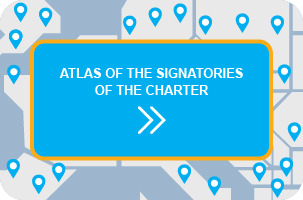Agenda 2030 and the European Charter for Equality
The CEMR European Charter for Equality and Agenda 2030 reinforce each other.
The European Charter for Equality of Women and Men in Local Life and Agenda 2030 are two policy documents that largely have common goals and can serve as leverage for each other.
This matrix shows how the articles in the CEMR Charter are related to goals and sub-goals of Agenda 2030. This makes it easier to see how the work on the Charter contributes to the completion of the agenda and vice versa. There is also a column where the user can fill in their organization’s own gender equality and sustainability goals.
The European Charter for Equality is a tool for municipalities and regions that want to work for a society that is not only formally but also effectively equal. Similarly, Agenda 2030 is an expression of the fact that the countries of the world want to protect human rights and promote equality and the empowerment of all women and girls.
Common principles
The European Charter for Equality is based on six basic principles. Corresponding principles can be found in the introduction to Agenda 2030, where the signatories describe the purpose of the sustainability goals and how the agenda is to be implemented.
In both the CEMR Charter and Agenda 2030, gender equality is treated as a fundamental right. At the same time, it is emphasized that the rights apply to different groups of women and men, girls and boys, with reference to e.g. ethnicity, religion, socio-economics and disability.
Both the Charter and the agenda highlight an even gender distribution in all decision-making as a prerequisite for a democratic society. The gender mainstreaming strategy in the Charter corresponds to the requirement for systematic integration of the gender equality perspective in the agenda. Both the Charter and the agenda emphasize the importance of the political commitments including decisions on adequate funding.













